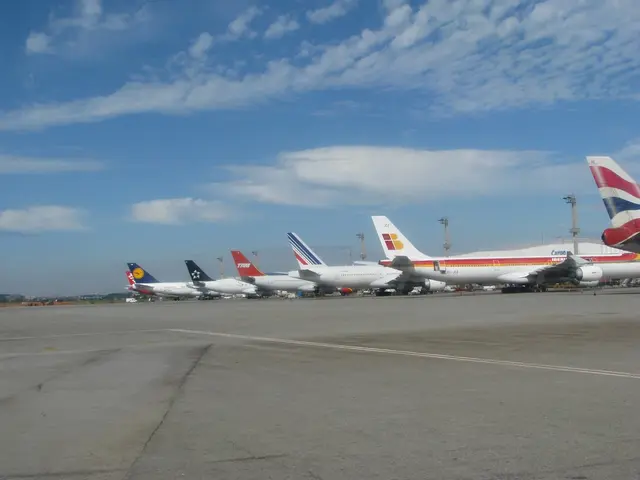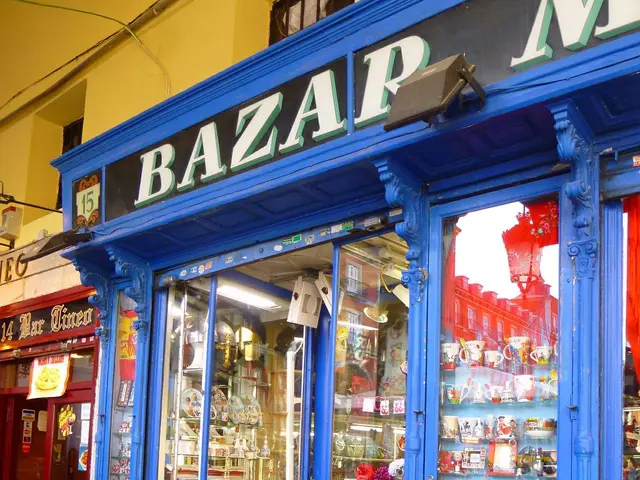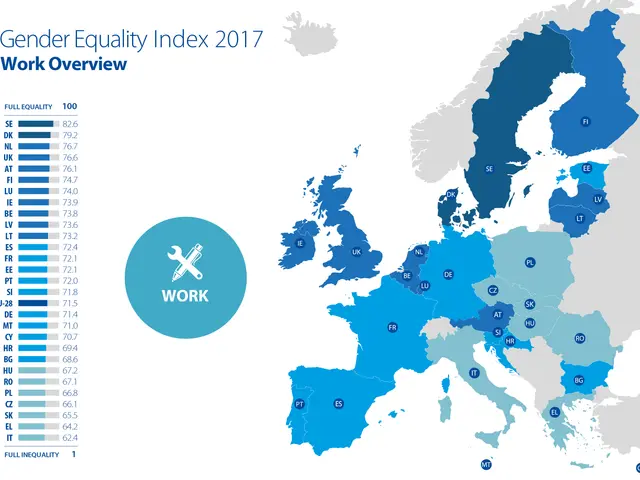Disruption in German Rail Service: Dutch Operations Affected by Work Stoppage
Unforeseen Chaos on the Rails: Dutch Strike Cripples Netherlands and International Train Traffic
The Huge Wage Dispute Hitches Train Travel
Unforeseen chaos reigns on the rails as a protracted wage dispute in the Netherlands has intensified, causing mayhem for train travelers across the country and beyond. In its latest skirmish, the Dutch Railways (NS) has yielded to employee demands by cancelling almost every train service, starting Tuesday, June 10, 2025.
The ongoing battle, which erupted on June 7 and has escalated ever since, has disrupted not just national train traffic but also affected select international routes, including those connecting the Netherlands and Germany. Join us as we delve into the situation and offer some potential travel alternatives.
The Ongoing Struggle
- 期iodic Unrest: The waves of discontent that began on June 7, 2025, morphed into a full-blown strike on Tuesday, forcing NS to axe all train services nationwide[1][2][3].
- Future Clashes: A fresh barrage of disruptions lies ahead: another strike is planned for Friday, June 14, with an additional cancellation of all trains scheduled for June 13[5].
- Ripples Across the Continent: With Utrecht serving as a vital European transport hub, the strikes have sent shockwaves through other European rail networks, making it challenging for NS to maintain a cohesive schedule.
Shuddering Stops in International Routes
- Disrupted Paths: Given the comprehensive cancellations brought about by the strikes, international train services are likely to be affected. No concrete details have emerged regarding routes specifically, but the strikes have resulted in system-wide hiccups, potentially impacting trains to and from Germany and other European countries.
- Rerouting Strategies: In times like these, passengers are encouraged to consult their train operators for the most recent updates. If viable, exploring alternative routing options is also highly recommended. Stay informed and equipped with supplies to weather the travel tumult.
Travel Hub of Utrecht Holds Its Ground
A murmur of relief can be heard as a shuttle service continues to operate between Amsterdam Central Station and Schiphol Airport. Additionally, those needing to make it to Amsterdam by train may find solace in utilizing Eurostar trains from Cologne via Brussels, as per the Dutch railways[3].
On the brighter side, regional trains from North Rhine-Westphalia and Lower Saxony to the Dutch border towns of Heerlen, Venlo, Arnhem, and Hengelo continue service without restrictions.
A Fractured European Journey Awaits
There's no denying that the strikes have left a trail of disruption across the train services interlinking the Netherlands, Germany, and other European countries. As the dust settles on a complicated situation, travelers hope for a return to regularity in their journeys. Until then, let's navigate this unpredictable labyrinth of rails together, staying informed, cautious, and resilient.
[1] https://www.ns.nl/nieuws/2025/06/07/ontslaaiactie-vakbonden-ns-onder-nis[2] https://www.akespedia.com/events/2025/6/10/dutch-railways-ns-cancels-all-train-services-due-to-ongoing-strike[3] https://www.dw.com/en/dutch-rail-strike-plunges-netherlands-into-chaos/a-57909170[4] https://www.railway-technology.com/news/dutch-train-strike-affects-german-train-operators-deutsche-bahn/[5] https://www.nltimes.nl/2025/06/10/nl-trains-to-remain-cancelled-on-friday-june-14/
- Railway Disruptions Impact Multiple Industries: This railway strike in the Netherlands not only paralyzes the transportation sector but also indirectly affects other industries like finance by compelling businesses to alter their travel plans or even lose revenue due to delayed shipments.
- Public-Transit Turmoil Extends Beyond Borders: Besides causing chaos in the domestic arena, the strikes have also disrupted European transportation networks, particularly international routes connecting the Netherlands and Germany, illustrating the far-reaching effects of a public-transit disruption on cross-border finance and commerce.








